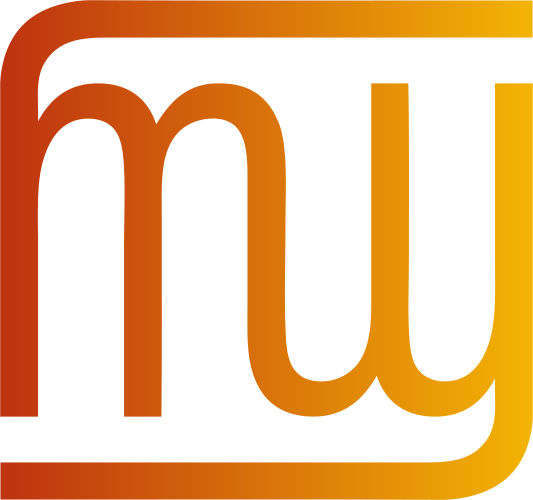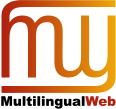 The W3C Internationalization (I18n) Activity works with W3C working groups and liaises with other organizations to make it possible to use Web technologies with different languages, scripts, and cultures.
The W3C Internationalization (I18n) Activity works with W3C working groups and liaises with other organizations to make it possible to use Web technologies with different languages, scripts, and cultures.
From this page you can find articles and other resources about Web internationalization, and information about the groups that make up the Activity.
Read also about opportunities to participate and fund work via the new Sponsorship Program.
What the W3C Internationalization Activity does
Selected quick links
Selected quick links
Selected quick links
XLIFF 2.0 becomes OASIS standard
The XML Localization Interchange File Format (XLIFF) version 2.0 has been approved as an OASIS Standard.
XLIFF is the open standard bi-text format: Bi-text keeps source language and target language data in sync during localization.
The publication of XLIFF 2.0 is of high importance for W3C since several of the main ITS 2.0 data categories can be used within XLIFF 2.0 to provide content related information during the localization process. Full ITS 2.0 support is planned for the upcoming XLIFF 2.1 version.
Report available for W3C MultilingualWeb workshop in Madrid

A report summarizing the MultilingualWeb workshop in Madrid is now available from the MultilingualWeb site. It contains a summary of each session with links to presentation slides and minutes taken during the workshop in Madrid. The workshop was a huge success, with approximately 110 participants, and with the associated LIDER roadmapping workshop. The Workshop was hosted by Universidad Politécnica de Madrid, sponsored by the EU-funded LIDER project, by Verisign and by Lionbridge.
A new workshop in the MultilingualWeb series is planned for 2015.
Character Model for the World Wide Web: String Matching and Searching Draft Published
This document builds upon on the Character Model for the World Wide Web 1.0: Fundamentals to provide authors of specifications, software developers, and content developers a common reference on string matching on the World Wide Web and thereby increase interoperability. String matching is the process by which a specification or implementation defines whether two string values are the same or different from one another.
The main target audience of this specification is W3C specification developers. This specification and parts of it can be referenced from other W3C specifications and it defines conformance criteria for W3C specifications, as well as other specifications.
This version of this document represents a significant change from its previous edition. Much of the content is changed and the recommendations are significantly altered. This fact is reflected in a change to the name of the document from “Character Model: Normalization” to “Character Model for the World Wide Web: String Matching and Searching”.
Linked Data meets Content Analytics: 4th LIDER & LD4LT event, 2nd September, Leipzig

The 4th LIDER roadmapping workshop and LD4LT event will take place on September 2nd in Leipzig, Germany. It will be collocated with the SEMANTiCS conference.
The goal of the workshop is to gather input from experts and stakeholders in the area of content analytics, to identify areas and tasks in content analytics where linked data & semantic technologies can contribute. The workshop will organised as part of MLODE 2014 and will be preceded by a hackathon on the 1st of September.
The event is supported by the LIDER EU project, the MultilingualWeb community, the NLP2RDF project as well as the DBpedia Project.
Announcing The Unicode Standard, Version 7.0
Version 7.0 of the Unicode Standard is now available, adding 2,834 new characters. This latest version adds the new currency symbols for the Russian ruble and Azerbaijani manat, approximately 250 emoji (pictographic symbols), many other symbols, and 23 new lesser-used and historic scripts, as well as character additions to many existing scripts. These additions extend support for written languages of North America, China, India, other Asian countries, and Africa. See the link above for full details.
Most of the new emoji characters derive from characters in long-standing and widespread use in Wingdings and Webdings fonts.
Major enhancements were made to the Indic script properties. New property values were added to enable a more algorithmic approach to rendering Indic scripts. These include properties for joining behavior, new classes for numbers, and a further division of the syllabic categories of viramas and rephas. With these enhancements, the default rendering for newly added Indic scripts can be significantly improved.
Unicode character properties were extended to the new characters. The old characters have enhancements to Script and Alphabetic properties, and casing and line-breaking behavior. There were also nearly 3,000 new Cantonese pronunciation entries, as well as new or clarified stability policies for promoting interoperable implementations.
Two other important Unicode specifications are maintained in synchrony with the Unicode Standard, and have updates for Version 7.0. These will be released at the same time:
UTS #10, Unicode Collation Algorithm — the standard for sorting Unicode text
UTS #46, Unicode IDNA Compatibility Processing — for processing of non-ASCII URLs (IDNs)
Workshop report: Summary of the LD4LT group kickoff / LIDER roadmapping workshop
The LIDER project has published a report on the first Linked Data for Language Technology event, which was held 21st March in alignment with the European Data Forum in Athens. Read the report.
Industry stakeholders from many areas (localization, publishing, language technology applications etc.) and key researchers from linked data and language technology discussed promises and challenges around linguistic linked data. The report summarizes all presentations and includes an initial list of use cases and requirements for linguistic linked data. This and the overall outcome of the event will feed into work of the LD4LT group (see especially the LD4LT latest draft version of use cases), and the field of multilingual linked data in general.
The LD4LT group is part of the MultilingualWeb community – learn more about related projects.
Last Call draft published for Encoding spec
A Last Call Working Draft of Encoding has been published.
While encodings have been defined to some extent, implementations have not always implemented them in the same way, have not always used the same labels, and often differ in dealing with undefined and former proprietary areas of encodings. This specification attempts to fill those gaps so that new implementations do not have to reverse engineer encoding implementations of the market leaders and existing implementations can converge.
The body of this spec is an exact copy of the WHATWG version as of the date of its publication, intended to provide a stable reference for other specifications. We are hoping for people to review the specification and send comments about any technical areas that need attention (see the Status section for details).
Please send comments by 1 July 2014.
Updates to two Working Group Notes published
Authoring HTML: Handling Right-to-left Scripts and Authoring HTML: Language declarations have both been updated to a new format that lists do’s and don’ts, but points to existing or new articles for detailed information. This will significantly help in keeping the material up to date in the future as technology changes. The documents have also been thoroughly overhauled to reflect the latest changes and information on
The first document provides advice to content authors using HTML markup and CSS style sheets about how to create pages for languages that use right-to-left scripts, such as Arabic, Hebrew, Persian, Thaana, Urdu, etc. It explains how to create content in right-to-left scripts that builds on but goes beyond the Unicode bidirectional algorithm, as well as how to prepare content for localization into right-to-left scripts.
The second helps content authors specify the language of content, which is useful for a wide number of applications, from linguistically-sensitive searching to applying language-specific display properties. In some cases the potential applications for language information are still waiting for implementations to catch up, whereas in others it is a necessity today. Adding markup for language information to content is something that can and should be done now and as content is first developed. If not, it will be much more difficult to take advantage of any future developments.
One more week to FEISGILTT – learn about and contribute to the future of Web and localization standards!
On 4 June and as part of the Localization World conference in Dublin, the FEISGILTT event will again provide an opportunity to discuss latest developments around localization and multilingual Web technologies. The event is sponsored by the LIDER project.
Highlights include updates about ITS 2.0 and XLIFF 2.0, and a session about usage scenarios for linguistic linked data in localization. Speakers include Kevin O’Donnell (Microsoft), Bryan Schnabel (Tektronix), Yves Savourel (Enlaso) and many more.
Register now to meet the key players around standards that will influence today’s and future business.
New version of Unicode Ideographic Variation Database released
The Unicode Consortium is pleased to announce the release of version 2014-05-16 of the Unicode Ideographic Variation Database (IVD). This release registers the new Moji_Joho collection, along with the first 10,710 sequences in that collection, 9,685 of which are shared by the registered Hanyo-Denshi collection. Details can be found at http://www.unicode.org/ivd/.